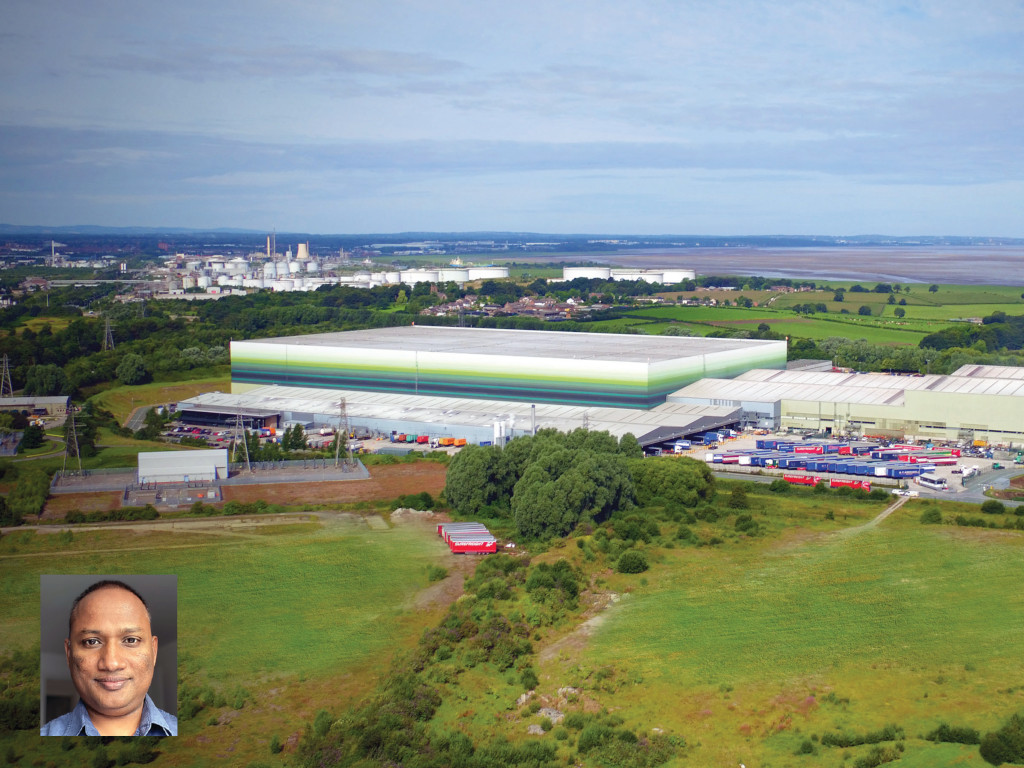GW: What are the main benefits of the DEEP Control Project being installed at Encirc’s Elton plant?
Dr. Ajith Appukuttan: The main benefit from the DEEP Control project is the significant improvement in operational efficiency through digitalisation of end-to-end operations and reduced CO2 emissions from the plant.
Additionally, this project paves the way towards digital transformation of their business, including supply chain operations, helping Encirc’s plant move towards Industry 4.0.
GW: What is Glass Futures’ role in the initiative?
Glass Futures played a significant role in identifying the funding opportunity, building project partnership with Hartree Digital Research Centre and Siemens plc, preparing and submitting the bid for the project. Glass Futures are also involved in the project as one of the partners providing programme management support and manufacturing expertise.
GW: How was the technology developed?
The project involves three stages. The first stage involves identifying different systems in the manufacturing operation from hot-end to cold-end and integrating them onto a common database stored in cloud. The second stage involves the team from Hartree analysing the production data using advanced machine learning algorithms and Siemens’s visualisation tools to identify trends between various operational parameters (including environmental and operator data) and product quality. The final stage involves deploying predictive algorithms in the furnace control loop and demonstrating the benefits from this technology through production trails.
GW: How is the DEEP Control Project technology being integrated into Encirc’s existing production?
The DEEP Control technology is initially deployed in Elton Furnace-1 and Line-11. Following demonstration trials on Line-11, the technology will be rolled out onto all lines in the plant.
GW: Will the DEEP Control Project complement ‘Encirc’s Industry 4.0 Ready’ production line?
Absolutely!
GW: What has the Science and Technology Facilities Council (STFC) Hartree Centre contributed to the DEEP Control Project?
Hartree centre are world leaders on digitalisation and have extensive experience and skills in this field. As explained earlier, Hartree will provide their expertise on advanced machine learning and digitalisation to identify trends between production data and various inputs with an aim to produce a predictive control loop algorithm that can optimise furnace operations.
GW: And Siemens’s contribution?
Siemens plc will provide support on their MindSphere platform for data integration and Mendix apps for data visualisation.
GW: How supportive have the UK government been in launching the project?
The UK Government have been very supportive from the outset as this project could help UK businesses become more competitive, allowing them to achieve one step closer towards net-zero goals.
GW: Are there already plans to replicate the Deep Control Project initiative at other plants within the Encirc/Vidrala group and/or at the facilities of other hollow glass manufacturers?
Vidrala group are also investigating another plan similar to DEEP Control to digitalise the operation.
GW: And could the technology be adapted in the future for flat, speciality and other glass melting applications?
Absolutely!
GW: In general, what is the future for the DEEP Control Project technology in the medium to long terms?
In the medium term, I see this technology evolving to incorporating other operations (i.e. supply chains) as businesses and other industries transform towards Industry 4.0 standards. In the long term, this technology will evolve to help industries respond quickly to changing trends in consumer behaviour.
GW: Following the positive biofuels trials earlier in 2021 and now the DEEP Control Project, how would you describe the collaboration between Encirc and Glass Futures?
Our relationship with Encirc is going from strength to strength as a result of these successful collaborative projects. Overall, our membership is focused on supporting the global glass supply chain and as such has seen a number of major multinational organisations participating, garnering excellent growth in the past two years.
GW: In your view, how important are such partnerships in positioning glass as the material of choice in the future and can Glass Futures be the catalyst for industry-wide collaborations?
Glass is as infinitely recyclable material, which is the primary reason for the UN proclaiming the year 2022 as the International Year of Glass.
Partnership projects with Glass Futures will help glass producers around the world move towards achieving the net zero CO2 emissions target in their manufacturing and supply chain operations. We believe collaboration is the path to delivering technology that transforms this industry, allowing it to position glass as the material of choice amongst consumers and governments.
GW: Since joining Glass Futures earlier this year, what have been the most rewarding aspects of your role as Senior R&D Projects Manager?
I came from a technology development background in the Aerospace sector. The most rewarding aspects of my role at Glass Futures have been translating some of the lessons learnt from my previous role and ensuring projects are run at optimum efficiency for the benefit of our members and collaborators. I particularly enjoy building relationships with our members to help me identify any operational challenges preventing them from delivering on their net-zero targets, and how Glass Futures can aid the delivery of those targets.
GW: In addition to the DEEP Control Project, do any current and/or upcoming Glass Futures R&D projects particularly excite you?
All projects at Glass Futures are challenging and exciting to various degrees. Future proofing furnace technologies to changing fuel scenarios (i.e. low carbon fuels) is particularly exciting.
GW: In your opinion, what should the glass industry be doing to support the goals of Glass Futures?
It’s simple really; the glass industry should understand that Glass Futures is here to help. We are by the glass industry, for the glass industry to help decarbonise operations and offer support in the mission of positioning glass as the material of choice. Therefore, in my opinion the glass industry should work closely with Glass Futures to identify pathways for maturing technologies and responding to Governmental regulations to meet industrial goals.


